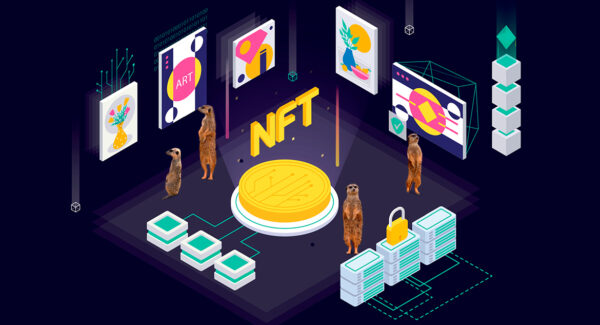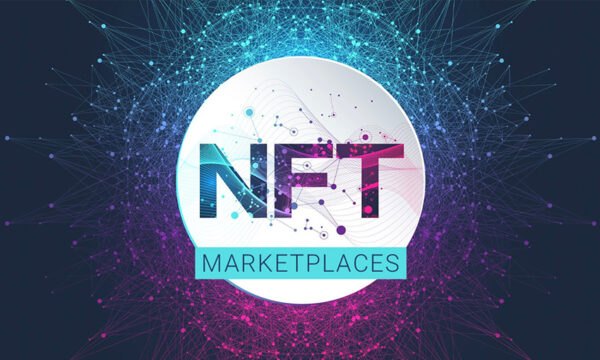Exploring New Digital Realms: The Evolution of NFT Marketplaces
In today’s rapidly digitizing world, the idea of ownership is being reimagined, with Non-Fungible Tokens (NFTs) leading the charge. These digital assets are redefining how we buy, sell, and value online content, and at the center of this transformation are NFT marketplaces—virtual spaces where these transactions come to life.
What is an NFT Marketplace?
An NFT marketplace is an online venue for the creation (minting), purchase, sale, and exchange of NFTs. Unlike traditional marketplaces, where products are often mass-produced, NFTs are inherently unique, with each transaction securely recorded on the blockchain. These platforms act as global auction houses, offering a vast and decentralized space where digital art, music, and more find their new owners.
The Growth of NFT Marketplaces:
As interest in NFTs has surged, so too has the development of diverse marketplaces catering to different audiences. From art-centric platforms like MakersPlace to niche sites focused on gaming assets or virtual collectibles, these marketplaces are as varied as the NFTs they trade. This variety reflects the growing appeal of NFTs, drawing in both digital natives and those new to the world of crypto.
Why Are NFT Marketplaces Thriving?
- Empowering Creators: NFT marketplaces give creators direct access to their audience, eliminating intermediaries and allowing them to capture more value from their work.
- Guaranteed Authenticity: The blockchain underpins each NFT, ensuring that every piece is verifiably unique, which adds to its value and appeal.
- Community Engagement: Beyond transactions, these platforms foster communities where creators and collectors connect, collaborate, and build lasting relationships.
- A New Investment Frontier: NFTs are emerging as a novel investment category, attracting those looking to capitalize on their potential for high returns.

Challenges Facing NFT Marketplaces:
Despite their rapid rise, NFT marketplaces face significant hurdles. Environmental concerns due to the energy-intensive nature of some blockchain technologies, the unpredictability of the NFT market, and risks of fraud are key issues. However, the industry is working on solutions like more sustainable blockchain models, rigorous verification systems, and developing regulatory frameworks to mitigate these challenges.
The Future Landscape of NFT Marketplaces:
Looking ahead, the potential for NFT marketplaces is vast. As technology advances, we can expect to see NFTs used in increasingly creative ways—from virtual land ownership to decentralized organizations that manage digital assets. Additionally, integrating AI and machine learning will likely enhance these platforms, providing personalized experiences and deeper user engagement.
Conclusion:
NFT marketplaces are more than a passing trend; they are shaping the future of digital ownership. As these platforms continue to evolve, they will redefine how we interact with and value digital content. For artists, collectors, and investors, NFT marketplaces open doors to a new era of opportunity, where the only limit is the scope of our imagination.
FAQs:
- What is an NFT marketplace?
An NFT marketplace is a digital hub where you can mint, purchase, sell, and exchange Non-Fungible Tokens (NFTs). These platforms leverage blockchain technology to authenticate and track the ownership of unique digital assets. - How do I purchase an NFT?
To acquire an NFT, you’ll need to set up an account on an NFT marketplace, link a compatible digital wallet, and browse available NFTs. You can then make a purchase or place a bid using cryptocurrency. - Why are NFTs considered unique?
NFTs stand out because they represent a distinct digital asset recorded on the blockchain, ensuring its authenticity and uniqueness. Each NFT contains unique metadata and a digital certificate that sets it apart from other tokens. - Can I list my NFT on multiple platforms?
While many NFTs can be listed across different marketplaces, it’s important to verify each platform’s specific rules and compatibility. Some NFTs may be exclusive to certain platforms due to agreements or technical constraints. - What are the typical fees for NFT transactions?
NFT transactions generally involve several fees, including listing fees, transaction fees, and blockchain network (gas) fees. The specific costs can vary depending on the marketplace and the blockchain used. - How do NFT marketplaces ensure security?
Security on NFT marketplaces is upheld through blockchain technology for verifying authenticity, along with encryption, two-factor authentication, and regular security audits to safeguard user assets and information. - Can I create my own NFTs?
Absolutely. Most NFT marketplaces provide tools for users to mint their own NFTs. You’ll need to upload your digital file, set the relevant details like pricing and royalties, and follow the platform’s minting instructions. - What should I research before buying an NFT?
Before purchasing an NFT, investigate the creator’s background, the NFT’s history and rarity, the marketplace’s fee structure, and the potential long-term value.Grasping these elements will enable you to make a well-informed choice. - How can I monitor the value of my NFTs?
You can track the value of your NFTs by observing market trends on the marketplace where you bought them, using NFT valuation tools, or keeping up with market analyses and expert insights. - What if my NFT gets stolen or I lose access to it?
NFTs are stored on the blockchain, and access is controlled by your wallet’s private key. If your NFT is stolen or you lose access to your wallet, you should contact the marketplace’s support team for guidance on recovery options.




